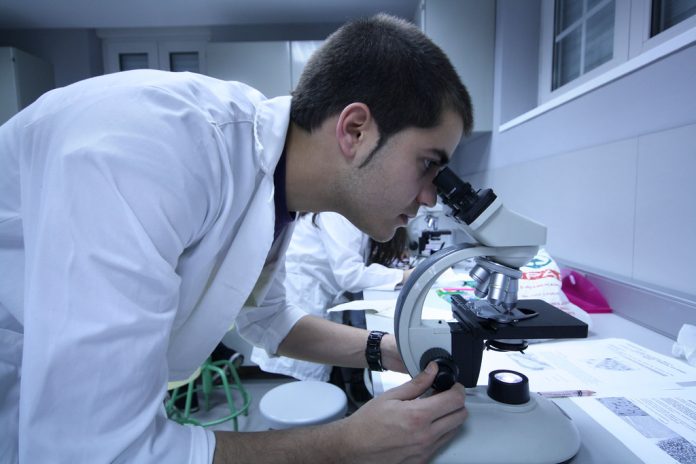In June, the 164 members of the World Trade Organization (WTO) agreed to suspend intellectual property (IP) rights for COVID-19 vaccines, thereby allowing all developing member states to authorize the production of the vaccines without consent from the original developers. In a new report, authored for the Property Rights Alliance, I take a closer look at this decision, highlighting how crucial IP rights have been to the rapid development and manufacturing of these vaccines, maintaining that the waiver will not drive up low vaccination rates in certain developing countries, as hoped by its proponents.
IP rights: crucial for the extremely fast development and manufacturing of Covid vaccines
A closer look at the development of the Pfizer/BioNTech COVID-19 vaccine teaches how important IP rights have been for its rapid development and manufacturing. This particular vaccine was the first vaccine to utilize mRNA technology. Just like the Moderna mRNA vaccine, it was shown to be 95% effective at preventing serious illness or death.
New study finds that the Covid-19 vaccines saved around 20m lives in 2021 (likely an underestimate).https://t.co/KmYOSf7Jpn pic.twitter.com/TdpwYz4h0F
— Bojan Pancevski (@bopanc) June 25, 2022
Previously, it was estimated it takes between 10 to 15 years to develop a new vaccine, at a cost of as much as $900 million. Before, the fastest a vaccine had ever been developed was four years, when Merck produced the world’s first effective vaccine against mumps in 1963. The first COVID-19 vaccine – utilizing a revolutionary new technology – was however approved for emergency use by the Food and Drug Administration (FDA) in less than one year after the novel coronavirus was first identified.
Katalin Karikó, a Hungarian-American researcher at the University of Pennsylvania, was a pioneer on using mRNA technology to develop vaccines, back in the 1990s already. Because mRNA vaccines work by training the body’s own cells to make a viral protein, they can be produced rapidly at scale – and against a wide array of diseases, which means they hold great promise for the future. In 2005, after years of research, together with her fellow researcher Drew Weissman, she finally made a breakthrough, but their discovery was not recognized as the scientific gamechanger it was. Several leading medical journals rejected their paper before the journal Immunity accepted it. Karikó and Weissman did however file patents for their invention and launched their own company, RNARx, in 2006 to continue their work, but the initial funding dried up, and the company closed in 2013.
That might have been the end for Karikó and Weissman’s discovery – a promising technology ahead of its time. But two emerging biotech start-ups — Cambridge, MA’s Moderna and Germany’s BioNTech — saw the potential of mRNA and licensed Karikó and Weissman’s patents. Karikó joined BioNTech, while Weissman kept perfecting the technology at his Penn lab. In 2014, he found a way to package the mRNA inside fatty cells called lipid nanoparticles. Without this delivery platform, there would be no mRNA vaccines.
When the first cases of an unidentified pneumonia-like virus in Wuhan, China were reported in December 2019, Karikó was preparing for a clinical trial of an mRNA flu vaccine. BioNTech quickly shifted its attention to developing a vaccine for the novel coronavirus. Within ten days of the viral sequence of SARS-CoV-2 being made available online, BioNTech had developed a prototype vaccine.
The @BioNTech_Group, half of them women, includes scientists with 60 nationalities, including authorities in the mRNA field such as Katalin Kariko, a biochemistry professor. @WSJ https://t.co/pcSPVhk4ih
— Bojan Pancevski (@bopanc) December 2, 2020
This illustrates the importance of IP in incentivizing basic research – the foundational science Karikó and Weissman performed. However, IP plays many other important roles in the development of vaccines.
BioNTech lacked the manufacturing capacity to produce its vaccine at the scale or the speed necessary to meaningfully change the course of the pandemic. By offering commercial rights to its product, BioNTech could bring in another partner – Pfizer, one of the world’s largest pharmaceutical companies — with the logistical expertise and resources required to meet such an enormous challenge. By the first year of the pandemic, it would manufacture nearly 3 billion doses of the mRNA vaccine.
Waiving IP rights will not drive up vaccination rates
Proponents of this unprecedented IP waiver have claimed that it is needed to boost vaccine equity. At the 2021 G-7 summit, the World Health Organization (WHO) announced a goal to fully vaccinate 70% of the population in every country by June 2022. Today, two-thirds of the world’s wealthiest countries reached this WHO target, but many low- and middle-income countries, in Eastern Europe and the Middle East, have seen their vaccination rates stagnate at a third or less of their population.
Proponents of the waiver have argued that it would solve the problem of low vaccination rates in certain developing countries. However, given that the world already has more than enough doses to vaccinate the entire global population, it’s clear that the problem isn’t the overall supply of vaccines, but rather other factors such as vaccine hesitancy and inadequate infrastructure.
Indian trade minister Piyush Goyal, a proponent of the patent waiver, has even acknowledged that “not a single plant to manufacture vaccines” will likely result from the WTO IP waiver, as “there is no demand for vaccines anymore.
In the early days of the vaccine rollout, the greatest challenge was limited supply, but we now must shift our focus to other barriers to vaccination involving delivery and demand. In Africa, vaccination campaigns have been hindered by a lack of trained vaccinators, insufficient cold storage, and the need for basic supplies, including needles, syringes, and disinfecting swabs. As in wealthy countries, vaccine hesitancy due to safety concerns and long-term effects has limited uptake. Africa’s low COVID-19 mortality rates has also made the virus feel like less of a threat — a perception reinforced for some by the emergence of the milder Omicron variant.
Furthermore, some experts think the WHO’s goal of a 70% vaccination rate is no longer practical or even desirable. Rather than seek to vaccinate all adults — many of whom already have some level of natural immunity from previous infection — these experts argue that public health departments should focus on those most vulnerable to serious illness.
The WTO deal on waiving IP rights does not contain guarantees against Chinese piracy
Like artistic work, medical technology is costly to produce but relatively cheap to copy. In the absence of IP rights, competitors could freely copy an invention and sell it at a fraction of the price. Few companies would be willing to make the bold investments in R&D necessary to discover new treatments and medicines.
While the June agreement asks that countries with existing capacity to manufacture COVID vaccines – like China – make a “commitment” not to avail themselves of the waiver, given China’s long record of violating, disregarding, and evading WTO rules, it is utterly fanciful to expect it to respect any commitment that is not legally binding.
🌎🚢 IP-intensive sectors export 68% of all EU exports. Stronger IP provisions in EU FTAs can lead to an increase of €17bn in investments each year. #IPinEUFTAs
Learn more in our new report by @FredrikErixon @osguinea @Phil_Lamprecht & @ErikvanderMarel https://t.co/7OZLLAbDl2
— ECIPE (@ECIPE) August 26, 2022
Waiving IP rights for vaccines may undermine vaccine safety and discourage vaccine development
As Pfizer and BioNTech tapped out their own production capabilities, they began to identify contract manufacturing organizations (CMOs) for technology transfer. Reproducing vaccines requires more than just access to IP; manufacturing sites also need access to production processes, test data, and medical formulas. In the case of mRNA vaccines, scientists had to be trained in highly advanced techniques to formulate the lipid nanoparticles that encase the mRNA and protect it from degradation.
Producing an mRNA vaccine is a technically complex process; in the absence of voluntary cooperation of the patent holders, low-income countries will find it difficult — if not impossible — to replicate. The risk highlighted by the likes of Pfizer warning for manufacturing and safety issues as a result of the waiver should not be ignored. In May 2021, the company’s ceo warned:
“Entities with little or no experience in manufacturing vaccines are likely to chase the very raw materials we require to scale our production, putting the safety and security of all at risk.”
Pfizer CEO opposes U.S. call to waive Covid vaccine patents, cites manufacturing and safety issues https://t.co/zKB2n5pRYA
— CNBC (@CNBC) May 7, 2021
With the efficacy of current vaccines waning as new variants emerge, BioNTech and Pfizer have developed an Omicron-adapted vaccine and booster, and just announced a new clinical trial for a universal COVID-19 vaccine to begin later this year. The waiver could scare off needed investment capital for this research, stunting progress toward life-saving technologies everyone in the world needs.
Nowadays, Karikó is researching mRNA as a platform for cancer immunotherapy, while Weissman’s lab has received funding from Pfizer for work on 20 different vaccines for diseases ranging from influenza to cystic fibrosis, HIV, and leptospirosis. As a result of the WTO waiver, an entire generation of cures based on mRNA technology could come to a halt.
Conclusion
The WTO’s decision is not likely to have a great effect on Covid vaccines, but it is a terrible precedent for the future. As Lorenzo Montanari, Executive Director of Property Rights Alliance puts it: “Rather than addressing the real problems which still persist today, such as last-mile delivery, vaccine hesitancy, and burdensome trade barriers, the WTO has chosen to break down the very system that allowed the vaccines to be created.”













